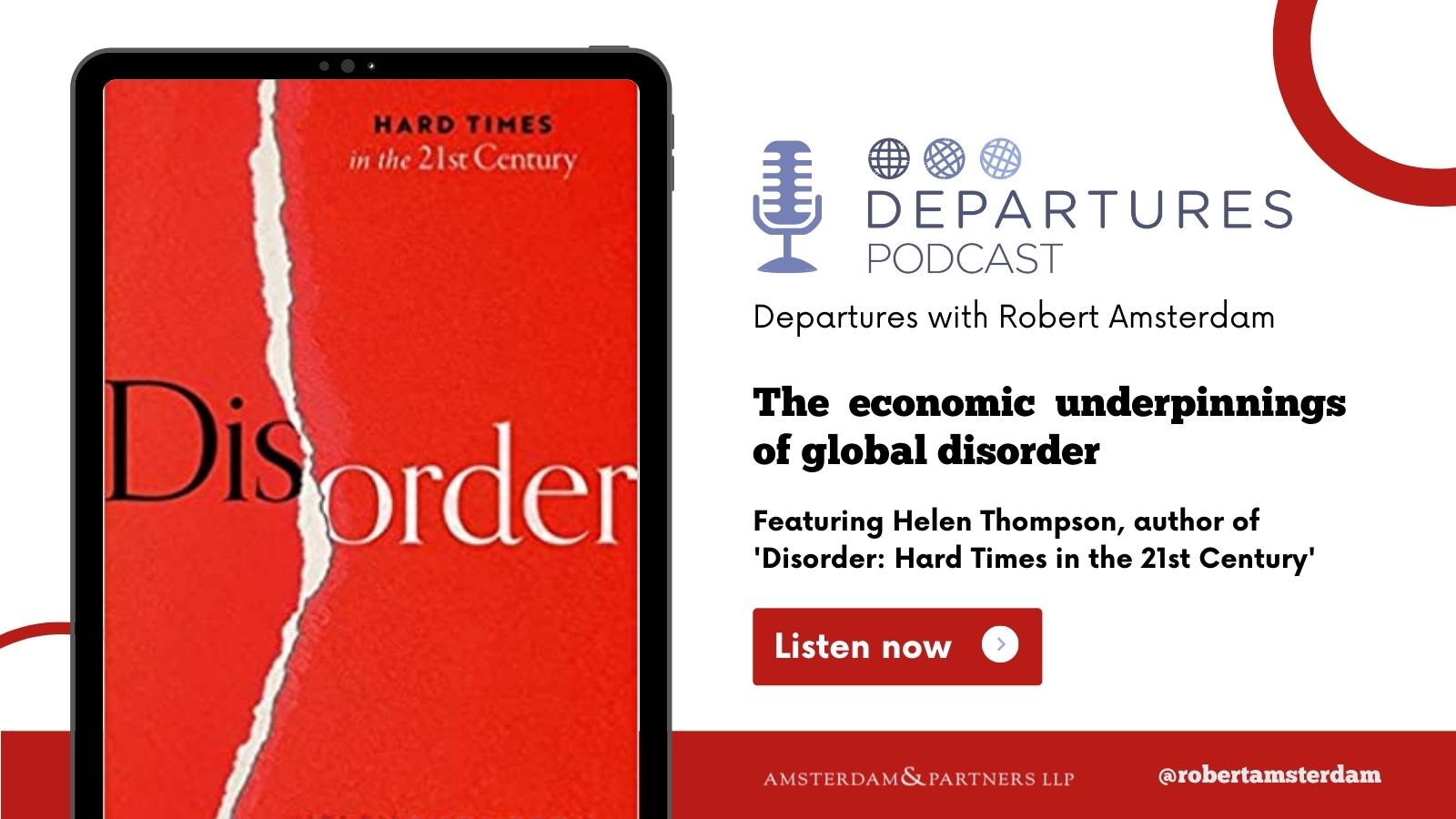Departures Podcast with Helen Thompson, author of ‘Disorder: Hard Times in the 21st Century’

We can all agree that the global world order has become rather disorderly. We also seem to have trouble coming up with consistent and convincing explanations of what brought about this disorder, pointing uselessly at shocks such as the passage of Brexit to the Trump to the Russian invasion of Ukraine.
But for political scientist Helen Thompson, the author of the excellent book, “Disorder: Hard Times in the 21st Century,” the makings of our current geopolitical problems were cast deep in the faultlines of history going back to the end of the Cold War and, more recently, the departure from global economic orthodoxy observed from 2005-2008.
Thompson argues that the process of democratization in many countries did not quite go as planned. There was not a massive enfranchisement of lower classes in many nations – instead we saw the rich and powerful become more rich and powerful, with a greater concentration of wealth and inequality taking place within democratic societies.
“What we see by the 1990s is once again the rise of aristocratic excess,” Thompson says in her conversation with Amsterdam. “We can see it in the United States with the growing importance of finance in campaigns and elections. (…) In terms of European countries, this aristocratic excess was primarily shaped through the technocratic elements of the European monetary union.”
Thompson argues that the financialization of society laid the faultlines for the disruptive events we are currently experiencing and struggling mightily to overcome. A fascinating conversation with a deep thinker.











